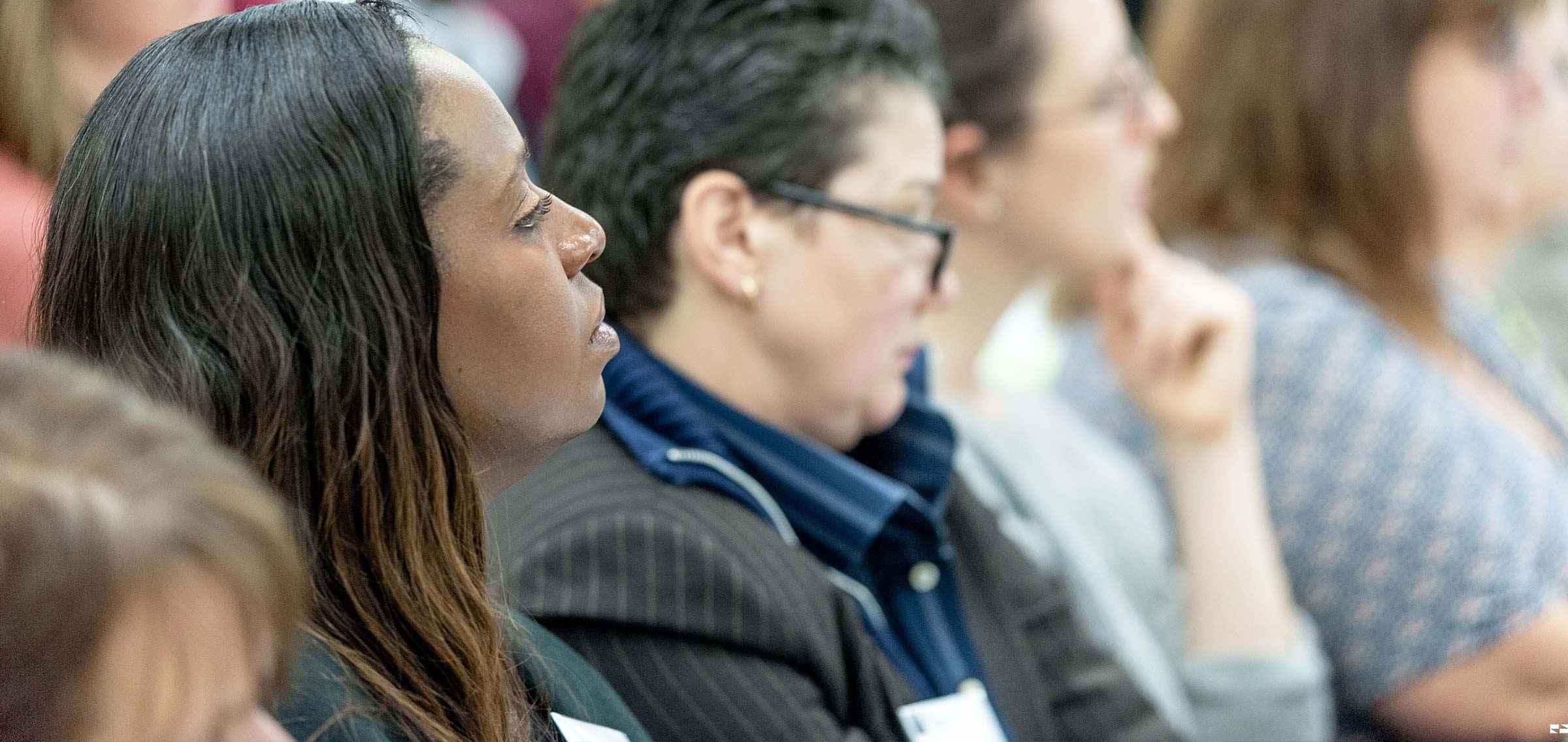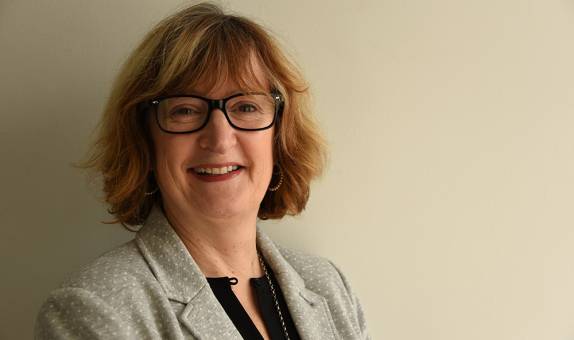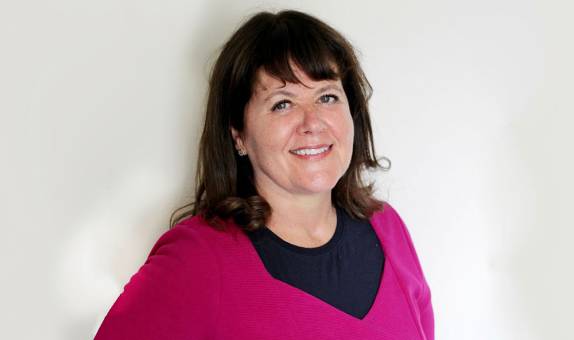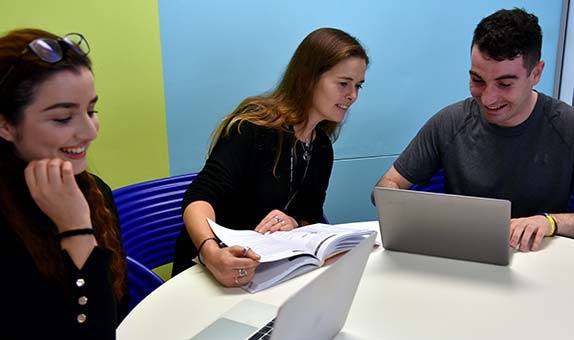Education MA
Why choose this course?
This blended-learning course is ideal for professionals who work with learners of any age, in settings such as children's centres, nurseries, schools, colleges, universities and hospitals.
You will become a research-informed practitioner, examining the relationships between practice-oriented knowledge, professional identity, institutional priorities and evidence-based practice. You will develop skills as a facilitator, mediator and leader of research-engaged practice.
This programme is relevant to education professionals who are keen to develop advanced knowledge and understanding of research methods in education. Taught sessions will focus upon deepening your existing understanding of professional practice and critically examine the challenges within your sector allowing you to explore your role, setting, and interprofessional working as a research-informed practitioner.
It helps you acquire the knowledge, confidence and attributes needed to complete a research project focusing upon your specific area of interest, and gives you the opportunity to progress towards studying for a doctoral degree, such as the Doctor of Education (EdD).
| Mode | Duration | Start date |
|---|---|---|
| Part time | 2 years |
October 2024 April 2025 |
| Part time | 2 years |
September 2025 October 2025 |
April entry is ONLY for those applicants who already hold 60 masters-level credits – before making an application please contact the programme administrator educationmasters@kingston.ac.uk.
| Main Location | Kingston Hill |
Reasons to choose Kingston University
- This course is taught on Saturdays through a blend of campus days and online teaching sessions, allowing you to balance study with work.
- If you already have a postgraduate qualification, such as a PGCE, you may be able to start the course from the third module, in April
- Kingston has expertise in working with research professionals at masters and doctoral level, ensuring you get the best experience.
What you will study
Please note that this is an indicative list of modules and is not intended as a definitive list. Those listed here may also be a mixture of core and optional modules.
Year 1
Year 2
Core modules
Current Issues in Reflective Practice and Interprofessionalism
30 credits
This module introduces students to reflective/reflexive practice through a focus on situations within a variety of professional settings where outcomes for children, young people and families are enhanced through interprofessional partnership. This will enable students to contextualise issues of professional identity within interprofessional practice.
Main features of the module are critical exploration of a range of ethical perspectives relevant to working with children and young people birth to 19 years and adults in relation to policy formulation, practice-orientated knowledge and professional skills and attitudes. Students will develop the collaborative communication skills required for leadership constructs that can facilitate change while supporting and enhancing professional /interprofessional development.
Through completion of a reflective journal during the module students will develop critical reflective practitioner skills to inform peer and colleague discussion within a learning community and challenge practice.
Perspectives on Policy, Practice and Professionalism
30 credits
This module introduces students to the theoretical perspectives, substantive issues and operational strategies which are relevant to understanding and enhancing professional practice. Tools of analysis will be evaluated to enable students to conceptualise their experiences of professional identity in workplace environments and to consider how a professional becomes research-informed and research-engaged in, and beyond, their 'situatedness' of practice.
Research Methods for Professional Practice
30 credits
This module provides an introduction to the ethical, political, methodological and epistemological issues relevant to educational research within a variety of contexts. You will discuss and critically analyse the purpose and application of educational research with regard to policy and practice.
You will learn about key methodologies and a range of data collection tools, including qualitative, quantitative and mixed method approaches to research design. This will support you with your dissertation research.
As a professional, you will explore the ethical complexities associated with practice-related research. You will develop critical responses to existing theoretical discourses to enable independent research into real world settings, including your workplace and beyond.
Core modules
Designing a Research Proposal
30 credits
This module is an introduction to the process of designing a research proposal will highlight the value of systematic enquiry in specific practice settings. You will design your research proposal, exploring the questions, rationale, literature to be reviewed, methods of enquiry and data analysis tools.
Research Dissertation
60 credits
You will undertake a research dissertation on a well-defined issue of professional practice to provide direct experience of 'real world' choices and decisions as a researching professional. Through your research, you will explore the relationship between policy, professionalism and practice. You will consider the ethical practice implications around communicating and disseminating the outcomes of your research dissertation.
Entry requirements
Teaching and assessment
The programme normally begins in October each year and is currently offered in a part-time (2 years) mode of delivery. In the first year, there are three modules and each module is taught across four Saturday sessions. In the second year, you will undertake the Designing a Research Proposal and Research Dissertation modules over 10 Saturdays across the year.
Learning experiences take the form of Saturday events, involving lectures, seminars, workshops and tutorials, which are supported by online resources for preparatory and consolidating guidance and tasks.
Each event in the programme is designed to develop a community of learners, where everyone participates to create a critically supportive cohort together.
Each taught module is designed as a 'building block' to support you by contextualising, justifying and then implementing a small-scale practice-focused enquiry.
You will access individual tutorial support in each module, between the taught Saturdays, a personal tutor, and a research supervisor in the final module (Research Dissertation).
Who teaches this course?
This course is delivered by the Department of Education.
Kingston University's Department of Education is committed to offering relevant, practical and accessible courses, and is consistently ranked among the top education departments in the country.
Fees for this course
Additional costs
Depending on the programme of study, there may be extra costs that are not covered by tuition fees which students will need to consider when planning their studies. Tuition fees cover the cost of your teaching, assessment and operating University facilities such as the library, access to shared IT equipment and other support services. Accommodation and living costs are not included in our fees.
Where a course has additional expenses, we make every effort to highlight them. These may include optional field trips, materials (e.g. art, design, engineering), security checks such as DBS, uniforms, specialist clothing or professional memberships.
Facilities at Kingston Hill
There is a wide range of facilities at our Kingston Hill campus, where this course is based.
Kingston Hill is a leafy, hillside campus situated about three miles away from Kingston town centre. It is a quiet, secure place to study with easy access to London, meaning it provides the best of all worlds for our students.
Find out more about the Kingston Hill campus in the virtual tour.
Library
One of the highlights of the Kingston Hill campus is the modern library, called the Nightingale Centre after Florence Nightingale, who was a regular visitor to Kingston Hill.
The library provides a spacious and attractive place for students to meet and study and features a cafe, more PCs and zoned study areas. Long opening hours give you plenty of access to specialist education books, journals and online resources.
Find out more about the Nightingale Centre in the virtual tour.
Computer and online facilities
There are many computers (PCs and Macs) available for you to use across the Kingston Hill campus when you need a place to study. Access to the wireless network across the campus means you can also work from your laptop or mobile device.
Using IT to support your studies is crucial. Kingston has an innovative virtual learning environment called Canvas. This allows you to access course materials and contact fellow students and staff while away from the campus.
Extra activities for this course
Keynote events will be an integrated feature of the taught weekends and will be calendared in the Department of Education diary.
The events and lectures in the Department of Education, and the wider University, enhance your studies and add an extra perspective to your learning.
As members of the Department of Education you will receive regular information about seminars, workshops, lectures and other research and teaching activities for and by staff and postgraduate students, including:
- BERA
- Erasmus project events
- European Conference for Educational Research
- London-based seminar programmes for educators
After you graduate
The role of the researching professional in education is of growing importance. Deputy head teachers, managers of children's centres, research development managers and subject-specific professionals may all use research skills to explore evidence.
Where this course will take you
The MA Education will help advance your learning, research and practice skills in a wide variety of education-related settings.
This programme helps to develop your employability skills as facilitators, co-ordinators, mediators and leaders of research-engaged professional practice.
It enables you to undertake a role of a researching professional in education-related contexts and practitioner research, and to lead collaborative learning networks for education. Applicants for practitioner research posts will benefit from the programme.
The role of the researching professional and interprofessional lead in education-related contexts is of growing importance in individual organisations and consortium settings. For example, deputy headteachers in schools and managers in children's centres may have responsibility for research projects to support improvements. Research Development managers in larger institutions and subject-specific lead professionals require research skills to explore evidence. Special Interest groups and informal collaborative networks contain research users and research creators.
The MA Education offers you a preparatory step towards professionally-relevant doctoral study in Education.
Current research in this subject
Many of our staff in the Department of Education are research-active. This ensures they are in touch with the latest thinking and bring best practice to your studies. Education research at Kingston includes work on:
- Subject pedagogy
- Curriculum design
- Planning
- Assessment
- Safeguarding
- SEND and inclusive practice
- Early Years
- Educational technologies
- Supporting more able learners
- Educational inequalities
- Policy
- History of education
Course changes and regulations
The information on this page reflects the currently intended course structure and module details. To improve your student experience and the quality of your degree, we may review and change the material information of this course. Course changes explained.
Programme Specifications for the course are published ahead of each academic year.
Regulations governing this course can be found on our website.








